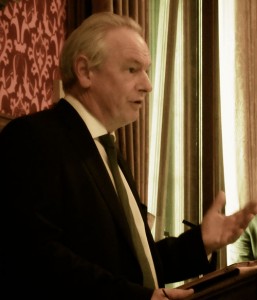It’s not quite a revolution. No-one is fighting in the streets but the world is changing. For decades – indeed centuries, banks have wielded a power over business and the wider economy that was virtually unquestioned. The effect wasn’t always negative of course. It is hard to see how the economic growth of the 20
th century could have happened without these institutions. But neither was it all good. There are anomalies in the way the economies of the western world operate - there are unintended consequences, winners and losers. The fluctuations that occur in our economies are exploited by the banks who have a privileged central position and their actions can amplify the ups and downs in exchange rates, interest rates and stock prices. These accentuated aberrations can be very damaging to economies, businesses and individuals. But there is one aspect of the way our economies have run that hasn't fluctuated and has always been pretty consistent – you never see a poor banker.
But now there’s a change in thinking. Some of the anomalies that we see – in particular the unfair playing field that exists between wealthy businesses and their smaller suppliers – are now being seen as unacceptable. Extending payment terms in order to optimize cash flow is a good thing only if you take a very isolationist view – if you see self-interest as the only thing that matters. If you take a wider view, you see that delayed payment hurts vulnerable suppliers, it pushes prices up and can damage an economy – at the very least it does nothing to help an economy that is on it’s knees and struggling to get back on its feet. This is why there's been a change of thinking and ironically, it is the banks we can thank for the change.


 Something familiar out of context can have a dramatic impact[/caption]
Joe Hyland, CMO at Taulia, recently wrote
Something familiar out of context can have a dramatic impact[/caption]
Joe Hyland, CMO at Taulia, recently wrote  It was announced yesterday that the UK Government will be fully supporting the introduction of electronic invoicing in public sector. Speaking at the launch of a Parliamentary Report:
It was announced yesterday that the UK Government will be fully supporting the introduction of electronic invoicing in public sector. Speaking at the launch of a Parliamentary Report: